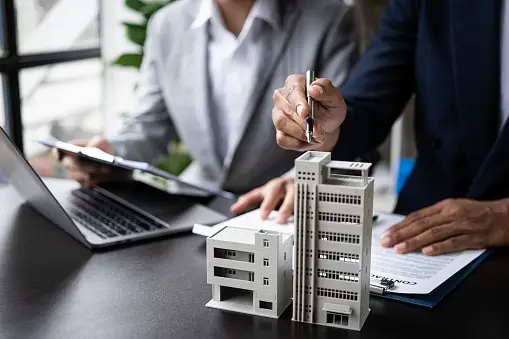The Future of Real Estate Property Managers: Trends to Watch
The real estate property management industry is changing rapidly due to technological innovations, changing tenant preferences, and developments within the housing market. Looking ahead, quite a significant number of trends are shaping the contours of property management. Let’s dive closer and find out what awaits real estate property managers in the coming years.
1. Remote Property Management
Remote management will change the way real estate property managers approach many of their business operations. Many companies doing property management are embracing remote management to manage properties without having to be in an office or on location. Some of the benefits include:
Less Overhead Cost: With the use of remote management, an organization will cut down on overhead costs of an office or on-site staff
Flexibility: Property managers can respond promptly to any need or urgency put forward by any tenant from a remote location; thus, their time to service and the satisfaction of the tenants will improve.
Increased Efficiency: The automated property management software would be able to automate routine collections and maintenance requests, along with tenant communications. With time, much of the property management work will take place remotely, thus allowing better service provision by the property manager.
2. Rise of Co-Living Spaces
Co-living spaces are gaining popularity among millennials and Gen Z renters seeking to live affordably in an urban environment. It is a means of saving on cost, as the facilities available are beyond that. These communal living arrangements encourage community and social interaction. This trend needs property managers to be aware and hence:
Preparing Flexible Leasing Arrangements: Offering shorter lease terms and flexible arrangements for the co-living residents.
Promoting Community Interaction: Design activities and events that drive communication and sharing between the community members toward improved living.
Design of Shared Amenities: Co-living companies invest in shared amenities, including shared kitchens and lounges, and coworking spaces, which attract co-living tenants.
As demand for co-living continues, the more property managers embrace the trend, the more they will attract a huge number of tenants who seek community-oriented living solutions.
3. Changing Tenant Preferences
Tenant preferences are changing to more amenity lifestyles and convenience in living. Property managers must change themselves along with the features that provide such modern amenities for their tenants. The main areas of focus here are the inclusion of these smart home features:
Smart Home Technology: Its requirements have started entering the minds of tenants due to its keyless entry facilities, smart thermostats, and energy-efficient appliances. Property managers must provide these features to promote higher tenant satisfaction.
Sustainability: Eco-friendly practices are no longer an amenity that most renters will only wish to have but something most renters require. Property managers can do this by adopting sustainable initiatives like energy-efficient upgrades and a recycling program. Green building certifications will further enhance the ‘green’ appeal for an environmentally conscious tenant.
Health and Wellness Amenities: Growing interest in health and wellness means that properties that offer fitness facilities, outdoor spaces, and wellness programs will appeal to renters.
Understanding and acting on these changing preferences, property managers may better be positioned as leaders in the competitive rental markets.
4. High Tides of Technology Dependence
Technology will only gain a further stronghold over property management with software solutions that streamline the way such operations are conducted and enhance tenant engagement. These include
Property Management Software: All-inclusive platforms dealing with tenant applications, maintenance requests, and financial tracking.
Virtual Tour and Viewings: Because remote rental visits are a practice becoming increasingly commonplace, virtual tours can be used for viewing properties where one does not really need to physically visit.
Artificial Intelligence and Chatbots: The integration of AI-based tools can enhance tenant communication by rapidly providing responses to routine questions and streamlining processes.
As the technology for property management develops, companies using these tools are more capable of siding with the interests of both the property owners and tenants.
5. Tenant Retention Techniques
With the growing price of getting a new tenant, real estate property managers have to work even harder to retain existing ones. Some of the effective techniques for retaining tenants include the following:
Communication: To be able to open lines of communication helps instill trust in the tenants, which may make them renew their lease with you again.
Personalized Experiences: Services and amenities tailored according to the individual desires of the renters enhance satisfaction and loyalty.
Responsive Maintenance Services: Timely and efficient maintenance services considerably improve the retention of renters.
This way, a property manager develops a long-term and stable relationship with the residents and enhances property value.
Conclusion
The future of real estate property management is rosy as exciting trends in it will shape the industry. From remote-controlled property management to co-living spaces and changing tenant preferences and technological integrations, the property manager must stay ahead of all these changes. Innovations need to be embraced by property management professionals, and the needs of modern renters must be understood and covered to gain success in competitive markets. This one, with proactive forward thinking, will make a new path for future property management.

